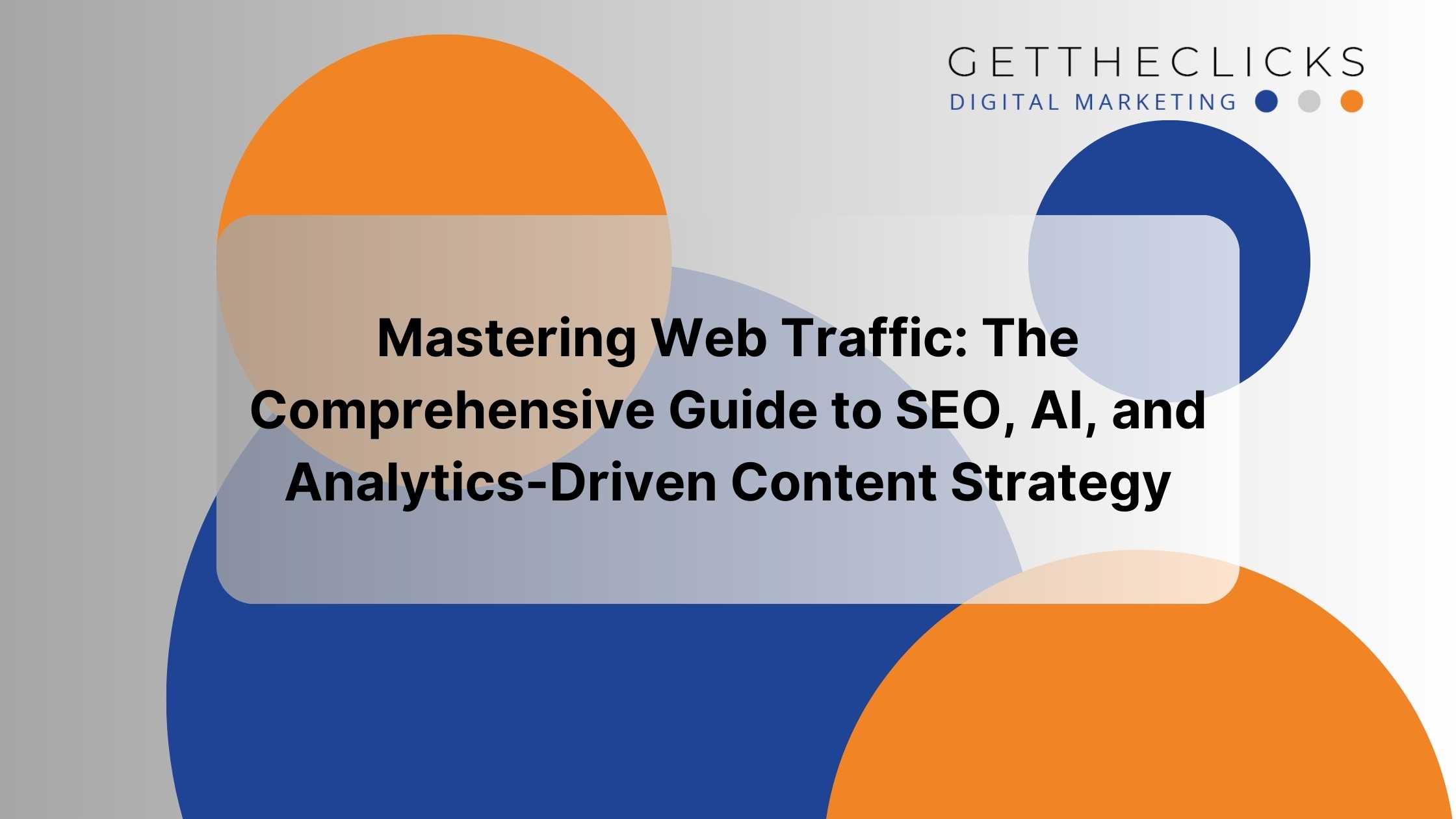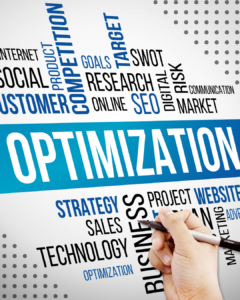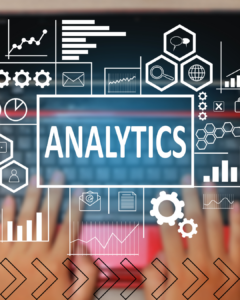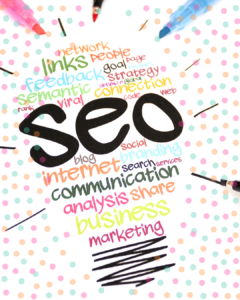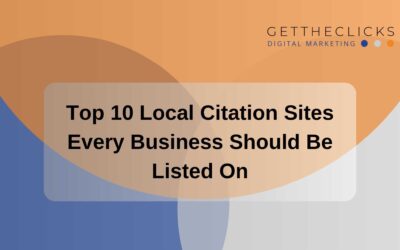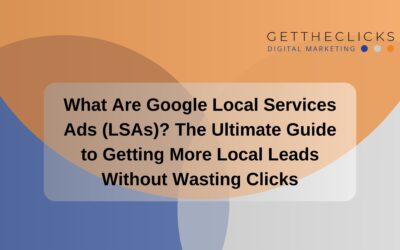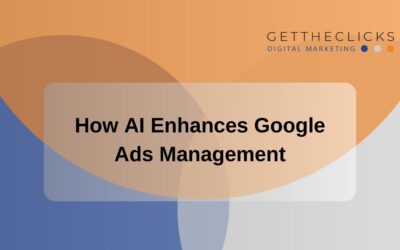In the ever-evolving digital landscape, mastering web traffic is not merely about attracting visitors to your website; it’s about strategically navigating the dynamic interplay between search engine optimization (SEO), artificial intelligence (AI), and data analytics. Welcome to our comprehensive guide—an illuminating journey that delves deep into the multifaceted world of web traffic management. Here, we’ll unravel the complexities of SEO algorithms, harness the predictive power of AI technologies, and leverage data-driven insights to craft a content strategy that resonates with your audience and drives sustainable growth.
The Power of Quality Content Creation
Quality content lies at the heart of any successful web traffic strategy. By creating valuable, informative, and engaging content, you can establish authority, attract organic traffic, and foster meaningful connections with your audience.
Conduct Thorough Research: Conducting thorough research is crucial for creating content that is informative, accurate, and valuable to your audience. This research can involve gathering data from credible sources, studying industry trends, and understanding your audience’s needs and preferences. By investing time in research, you can ensure that your content is well-informed and provides genuine value to your readers.
Produce Clear and Compelling Writing: Quality content should be easy to read and understand. Use clear and concise language to convey your message effectively, and avoid jargon or overly technical terms unless necessary. Structure your content logically, with a clear introduction, body, and conclusion, and use headings, bullet points, and other formatting techniques to improve readability. Additionally, aim to make your writing compelling by incorporating storytelling, anecdotes, or examples that resonate with your audience.
Focus on Originality and Uniqueness: In a sea of online content, originality is key to standing out and capturing your audience’s attention. Aim to produce content that offers a unique perspective, insight, or angle on a topic, rather than simply rehashing information that is already widely available. This could involve sharing your own experiences, conducting original research, or offering innovative solutions to common problems. By providing fresh and unique content, you can establish yourself as a thought leader in your industry and attract a loyal following.
Harnessing the Power of AI for Content Optimization
Harnessing the power of AI for content optimization can help you create more personalized, relevant, and engaging content experiences for your audience. By leveraging AI technologies such as content personalization, natural language processing, content creation, and predictive analytics, you can improve the quality, effectiveness, and efficiency of your content optimization efforts, driving better results for your business.
Content Personalization AI enables you to deliver personalized content experiences to your audience by analyzing their behavior, preferences, and demographics. Through machine learning algorithms, AI can segment your audience and recommend relevant content to each user, increasing engagement and conversion rates. By tailoring content based on individual interests and behaviors, you can create a more compelling and personalized experience for your audience, leading to higher retention and satisfaction.
Content Creation and Generation: AI-powered content generation tools can automate the process of creating, editing, and optimizing content. These tools use machine learning algorithms to analyze data, identify trends, and generate high-quality content at scale. Whether it’s writing blog posts, product descriptions, or social media captions, AI can help you produce content that is engaging, relevant, and optimized for search engines. By leveraging AI for content creation, you can streamline your workflow, increase productivity, and maintain a consistent publishing schedule.
Predictive Analytics: Predictive analytics algorithms use historical data to forecast future trends, behaviors, and outcomes. By analyzing past performance metrics, AI can predict which content strategies are likely to be most effective in the future. This allows you to make data-driven decisions about content creation, distribution, and optimization, maximizing the impact of your efforts. Predictive analytics can help you identify emerging trends, anticipate audience preferences, and optimize your content strategy for maximum engagement and ROI.
Harnessing the Power of Analytics for Data-Driven Insights
Analytics tools provide invaluable insights into user behavior, website performance, and marketing effectiveness, allowing you to make informed decisions and optimize your web traffic strategy for maximum impact.
Define Clear Objectives: Begin by clearly defining your business objectives and key performance indicators (KPIs). What specific insights are you looking to gain from your data analysis? Whether it’s improving operational efficiency, understanding customer behavior, or optimizing marketing campaigns, having well-defined objectives will guide your analytics efforts and ensure that you focus on extracting relevant insights.
Invest in Quality Data Collection and Management: High-quality data is essential for meaningful analysis. Ensure that you have robust processes in place for collecting, storing, and managing your data. This includes cleansing and preprocessing the data to remove inconsistencies and errors that could skew your results. Investing in data quality tools and practices will pay off in more accurate and reliable insights.
Utilize Advanced Analytics Techniques: Beyond basic reporting and descriptive analytics, leverage advanced analytics techniques such as predictive analytics, prescriptive analytics, and machine learning to uncover deeper insights and actionable recommendations. Predictive models can forecast future trends and outcomes, while prescriptive analytics can suggest optimal courses of action based on your data. Machine learning algorithms can identify patterns and correlations that may not be apparent through manual analysis alone.
Leveraging Social Media for Maximum Impact
Social media platforms serve as powerful channels for driving traffic, fostering engagement, and amplifying your brand’s reach. By strategically leveraging social media, you can connect with your audience, promote your content, and drive traffic to your website.
Understand Your Audience: Take the time to understand your target audience – their demographics, interests, behaviors, and preferences. Use social media analytics tools to gather insights about your followers, including their demographics, engagement patterns, and content preferences. This information will help you tailor your content and messaging to resonate with your audience effectively.
Create Engaging Content: Develop high-quality, engaging content that adds value to your audience’s lives. This could include informative articles, entertaining videos, eye-catching visuals, polls, quizzes, and user-generated content. Experiment with different formats and topics to see what resonates best with your audience. Encourage interaction and conversation by asking questions, responding to comments, and running contests or giveaways.
Be Consistent and Authentic: Consistency is key to maintaining a strong presence on social media. Develop a content calendar and posting schedule to ensure that you’re regularly sharing content with your audience. However, it’s essential to maintain authenticity in your interactions and content. Avoid overly promotional or sales-focused messaging and instead focus on building genuine connections with your audience by sharing behind-the-scenes glimpses, stories, and user-generated content.
Maximizing Reach with Paid Advertising Campaigns
Paid advertising campaigns offer a powerful avenue for maximizing reach and amplifying your message to a targeted audience. Whether it’s expanding brand awareness, promoting products or services, or driving traffic to your website, paid advertising campaigns provide an effective means to maximize your reach and achieve your marketing objectives.
Targeted Audience Reach: Paid advertising platforms offer advanced targeting options that allow you to reach highly specific audience segments based on demographics, interests, behaviors, and more. By precisely targeting your ads to the most relevant audience segments, you can ensure that your messaging resonates with potential customers who are most likely to convert. This targeted approach not only maximizes the effectiveness of your advertising campaigns but also helps to improve overall ROI.
Data and Insights: Paid advertising campaigns provide valuable data and insights that can inform your SEO strategy. Through analytics tools provided by advertising platforms like Google Ads or social media platforms, you can track key metrics such as click-through rates, conversion rates, and return on ad spend. By analyzing this data, you can gain valuable insights into which keywords, ad creatives, and audience segments are most effective at driving traffic and conversions. This information can then be used to optimize your SEO efforts, such as refining keyword targeting, improving website content, and identifying opportunities for link building.
Enhanced Brand Visibility and Authority: Paid advertising campaigns can help to enhance your brand visibility and authority in search engine results. By appearing at the top of SERPs alongside organic search results, paid ads increase the likelihood that users will click through to your website. Additionally, consistent visibility through paid advertising can reinforce brand recognition and credibility, especially for competitive keywords or industries. This increased brand visibility can have a positive impact on your organic search rankings over time, as users become more familiar with your brand and are more likely to engage with your organic content.
Optimizing for Search Engines to Drive Organic Traffic
Optimizing your website for search engines to drive organic traffic offers numerous benefits, including increased visibility and traffic, cost-effectiveness, credibility and trust, and long-term sustainability. By investing in SEO efforts and prioritizing the creation of high-quality, relevant content, you can position your website for success in organic search results and achieve your business goals. Here are four key advantages:
Increased Organic Traffic: By optimizing your website for search engines, you improve its visibility in search engine results pages (SERPs). Appearing higher in search results for relevant keywords means more users are likely to click through to your website, resulting in increased organic traffic. This traffic is valuable because it’s comprised of users actively searching for information, products, or services related to your business, making them more likely to convert into customers or leads.
Enhanced Brand Visibility and Credibility: Ranking prominently in search engine results can significantly enhance your brand’s visibility and credibility. Users tend to trust websites that appear at the top of search results, perceiving them as authoritative and trustworthy sources of information. By consistently appearing in top positions for relevant search queries, you can establish your brand as an industry leader and build trust with potential customers. Moreover, organic search results are perceived as more credible than paid advertisements, further boosting your brand’s credibility.
Cost-Effectiveness and Long-Term Sustainability: Unlike paid advertising, which requires ongoing investment to maintain visibility, organic traffic generated through SEO is essentially free. While SEO requires upfront investment in time and resources, the long-term benefits far outweigh the initial costs. Once you achieve high rankings for relevant keywords, you can continue to receive organic traffic without ongoing advertising expenses. Additionally, SEO efforts tend to have a cumulative effect, meaning that the benefits can compound over time, leading to sustained growth and long-term sustainability for your business.
Conclusion
As we conclude this journey, it’s evident that success lies not in isolated tactics but in the harmonious integration of SEO principles, AI technologies, and data-driven insights into a cohesive content strategy. By harnessing the power of SEO to optimize for search engines, leveraging AI advancements to enhance personalization and efficiency, and leveraging analytics to glean actionable insights, businesses can propel themselves towards unparalleled digital success.

Stephan Boehringer is the CEO of Get The Clicks, a web marketing company. Stephan has over 20 years of experience in the field of web marketing, and has been a speaker and consultant for many years. Stephan is passionate about web marketing and helping their clients be the best they can be.
Stephan Boehringer graduated from the University of Florida with a Bachelor of Science in Business, Management, Marketing, and Related Support Services.

